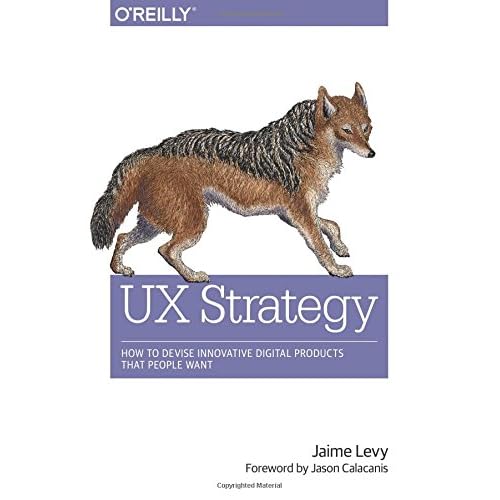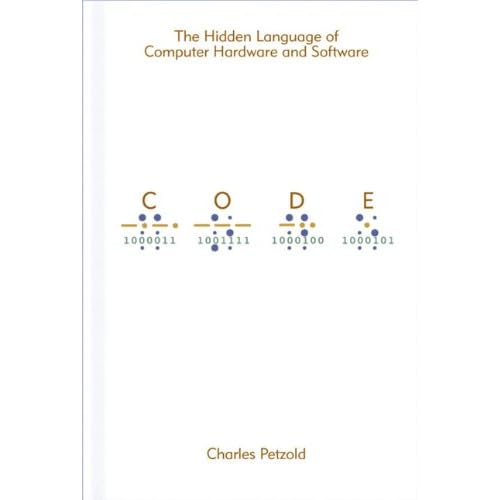Are you interested in the field of computer science and want to know more about it?
Have you been considering taking a computer science course but aren’t quite sure which direction to take?
It’s a good thing that today there are thousands of books available on the topic. These books cover a huge range of topics that go well beyond basic programming. In fact, almost anyone is bound to find something of interest in this field.
Here’s a list of some of the best computer science books to help get you started.
Top 10 Computer Science Books Table
| Picture | Name | Focus | Price | Rating (1-5) |
|---|---|---|---|---|
 |
1. UX Strategy: How to Devise Innovative Digital Products that People Want by Jaime Levy | UX | $$ |
|
 |
2. The LEGO MINDSTORMS EV3 Discovery Book (Full Color) by Laurens Valk | Programming Robots | $$ |
|
 |
3. Code: The Hidden Language of Computer Hardware and Software by Charles Petzold | Coding | $$ |
|
 |
4. Elements of Programming Interviews: The Insiders’ Guide by Adnan Aziz | Programming C ++ | $$ |
|
 |
5. Data Smart: Using Data Science to Transform Information into Insight | Data science | $$ |
|
 |
6. Hacking: Computer Hacking, Security Testing,Penetration Testing, and Basic Secur | Hacking | $ |
|
 |
7. Algorithms (4th Edition) by Robert Sedgewick | Algorithms | $$$$ |
|
 |
8. Python Programming: An Introduction to Computer Science | Programming | $$ |
|
 |
9. Structure and Interpretation of Computer Programs – 2nd Edition | Programming | $$$ |
|
 |
10. The Second Machine Age: Work, Progress, and Prosperity in a Time of Brilliant Technologies | Technology and society | $ |
|
What Can I Do with a Computer Science Degree?
Many of you are probably already familiar with computer science basics, but there’s more to it than programming and algorithms.
The field includes programming languages, AI technology, internet security, digital marketing, software development, coding theory, and a whole host of innovative applications.
Here are a few interesting examples of emerging fields that you can go into with a computer science background:
- Network Architecture. This refers to a computer network framework, including hardware, software, and communication tools and techniques and technologies. If you are fascinated by the idea of building a computer network from scratch, this field could be a great choice.
- Nanocomputing. This is a fascinating and relatively new field that builds tiny computers used for a variety of purposes, including medicine and engineering.
- Robotics. Artificial intelligence and robotics will definitely be in demand soon. If you are interested in building and engineering, this could be a great choice to focus on.
- Graphic Design. If you are interested in mixing your technological expertise with your artistic tendencies, you are in luck, as there is always a demand for highly tech-savvy people in arts and media.
What Skills Do You Need for a Degree in Computer Science?
You definitely need to be technically-minded and logical to succeed in a career in computing science, and if you’re not sure whether you will be good at it, go ahead and check out a few of the best computer science books on our list.
Here are a few skills that help people excel in computer science:
- Mathematics. Computing science and math go hand-in-hand, so you will need to brush up on your math skills if you are rusty and want to get into a computer science program.
- Creativity. You may be surprised to find out that the best computer people also tend to be highly creative problem-solvers.
- Determination. If, at first, you don’t succeed, you need to be willing to try again; this is part and parcel of any math or technical field as it can be extremely challenging both academically as well as while working in the field.
Top 3 Best Computer Science Books Reviews
1. UX Strategy by Jaime Levy
If you’re thinking about a career in computer science, you will want to get a good sense of where your career will take you in a business or big picture overview of what user experience (UX) means.
In this book, pioneer Jaime Levy offers an excellent overview of how to design innovative products in the context of entrepreneurial strategy.
This book is great for all types of digital professionals involved in the business end of design and UX strategy, from startups to marketing specialists. It speaks to the human element and describes the process of development and marketing in accessible terms.
Whether you are an engineer, designer or businessperson, definitely check out this book to help you understand the entire process of creating and marketing innovative, user-friendly digital products from the ground up.
2. The LEGO MINDSTORMS EV3 by Laurens Valk
This is a very interesting read for young people interested in robotics. Learn how to build and use motors and sensors as well as tools for basic programming to build your own robots at home.
This book is so practical and fascinating for those interested in building their first robot and learning programming basics. It is easy to follow, filled with very user-friendly images and instructions for building fantastic beginner level robots at home.
Note that this book is meant to be built with Lego Mindstorms robot kits.
Learn beginner and advanced techniques laid out in such a way that even elementary school kids can follow the step by step instructions. You will even learn how to develop your own programming to create your own unique designs.
Clear diagrams and well-though-out instructions make this book a seriously practical addition to any young (or old) science fan’s bookshelf.
3. Code by Charles Petzold
Technophiles interested in digging into the world of code should definitely consider this book as it’s one of the best computer science books available.
This is not a technical book but more of a discussion of how we use code in various contexts in everyday life.
If you’re interested in computers and smart technology, pick up this book to give you a better understanding of how codes appear and apply in real life. It is not a technical book, rather than a discussion of communication and how CODE permeates every aspect of society.
It is a very comprehensive introduction to all types of real-world systems for anyone who wants to learn to code and understand the bigger picture applications, not just the technical side.




